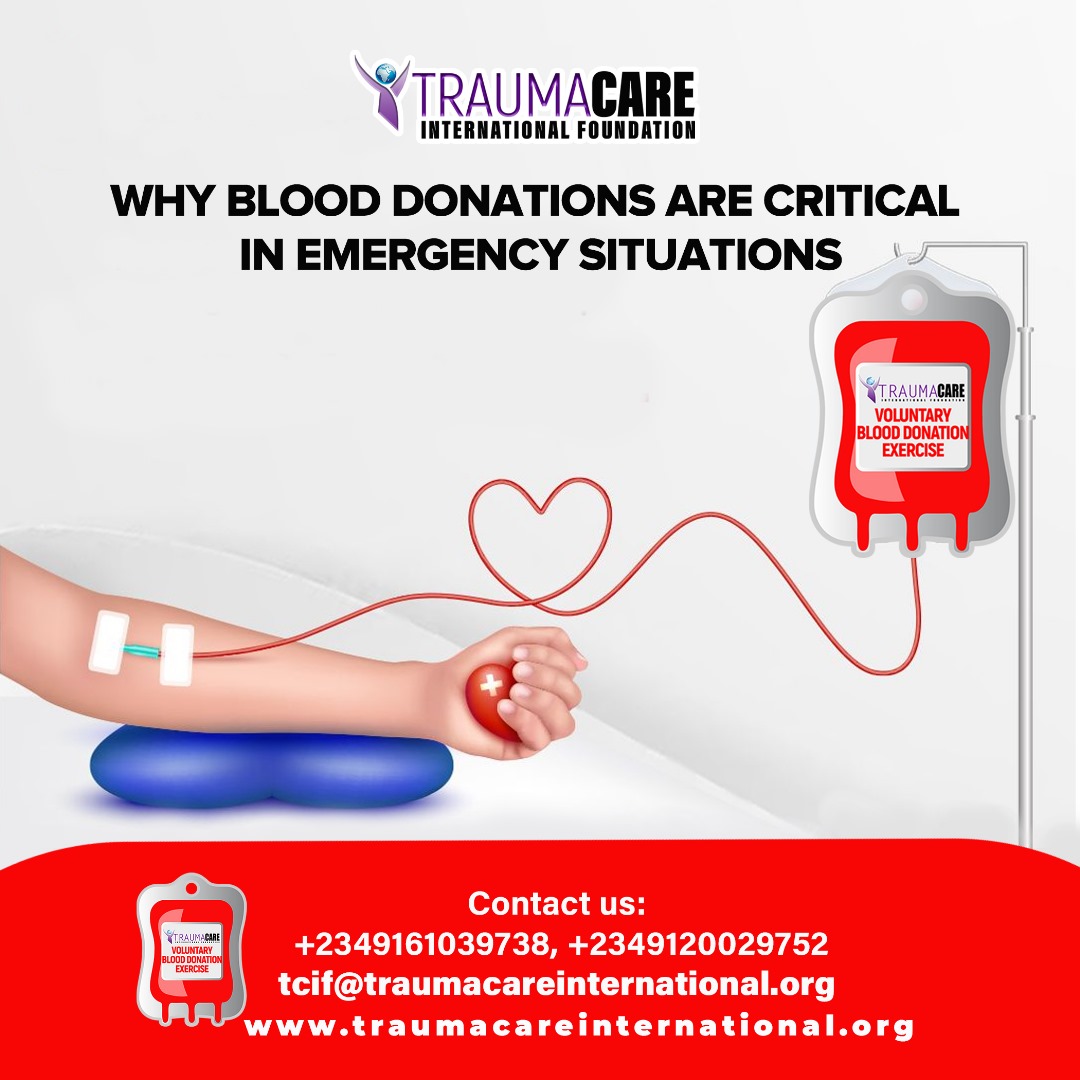In times of crisis, when lives hang in the balance, the importance of blood donations becomes starkly evident. Emergencies can occur in various forms—natural disasters, accidents, violent incidents, or unexpected medical conditions—each of these requires critical resources to save lives. At the heart of this lifesaving matrix lies an irreplaceable element: blood. Understanding the pivotal role of blood donations in emergency situations not only underscores their necessity but also highlights the profound impact each individual can have by contributing to their community in times of dire need.
The Vital Role of Blood in Medical Emergencies
Blood is an essential component of human life, delivering oxygen to cells, removing waste, and facilitating critical bodily functions. In emergencies, it becomes even more vital. Patients suffering from traumatic injuries may experience significant blood loss due to accidents, violence, or severe medical conditions such as complications from childbirth or surgery. In these scenarios, every second counts, making immediate access to blood transfusions crucial for survival.
- Trauma and Injury: After a car crash or a natural disaster, victims can lose vast quantities of blood rapidly. For instance, a person involved in a severe accident may require several units of blood to stabilize their condition. Without timely donations, hospitals can face a dire shortage, increasing the risk of mortality.
- Surgery: Many surgeries, especially those involving major organs or complex emergencies, necessitate the availability of blood products. Surgeons cannot always predict the volume of blood a patient will need during an operation; hence, having a robust blood supply is paramount for safety.
- Medical Conditions: Conditions such as anemia, cancer, and hemophilia may require patients to undergo blood transfusions as part of their treatment regimes. In emergencies, these patients are particularly vulnerable if blood supplies dwindle.
The Human Element: Donating Blood Saves Lives
Blood donors are the unsung heroes in the narrative of emergency medicine. Each donation has the potential to save multiple lives—merely one pint of blood can help up to three different patients. This profound impact comes from the selfless act of individuals who step forward during critical times.
- Community Resilience: Blood donation fosters a sense of community solidarity. When individuals come together to donate, they create a safety net for their neighbors, friends, and loved ones. This spirit of collective responsibility emphasizes that we are all interconnected and that our actions can directly influence the health and survival of others.
- Hope and Healing: Beyond the physical aspect of blood donations, there is an emotional layer that reinforces their importance. For patients and families facing terrifying medical emergencies, the knowledge that there are people willing to donate blood instills hope. It reassures them that the community cares and that provided assistance is possible—even in the bleakest moments.
Preparedness and the Need for Regular Donations
While blood is critical during emergencies, its need exists year-round. The unpredictability of crises means that hospitals must maintain a ready supply of blood at all times. This is why regular blood donations are essential—not just in response to crises but as a proactive measure to ensure that when emergencies arise, the resources are available.
- Constant Demand: The demand for blood is constant and fluctuates with the seasons, illnesses, and unforeseen accidents. By establishing a routine of blood donation, community members help create a stable and reliable blood supply.
- Emergency Preparedness Initiatives: Many health organizations and hospitals engage in preparedness programs that include outreach for regular donations. These initiatives educate the public about the need for blood and the ongoing requirements for safe and sufficient blood supplies.
- Volunteer Activism: Blood donations can also act as a catalyst for community activism. Individuals who donate often spread awareness about the importance of blood donation, encourage friends and family to participate, and even volunteer for blood drives, leading to a ripple effect of altruism and community engagement.
Myths and Misconceptions Around Blood Donation
Despite its importance, blood donation is often surrounded by myths that can deter potential donors. It’s crucial to address these misconceptions and reassure individuals about the donation process.
- Safety of Donating: Many people fear that donating blood is painful or unsafe. In reality, health organizations adhere to stringent safety protocols to ensure a sterile, safe, and quick process.
- Eligibility: Others may think they are ineligible due to minor health conditions or lifestyle choices. Most people can donate, and health professionals can provide guidance on eligibility criteria.
- Impact on Health: Some worry that donation might exhaust their energy or make them sick. On the contrary, most donors feel a sense of rejuvenation and satisfaction after contributing.
Conclusion: The Call to Action
As we reflect on the importance of blood donations in emergency situations, it becomes clear that this is more than a medical need; it is a lifeline woven through the fabric of our society. Each donation can be a beacon of hope, a promise of resilience, and a testament to the caring nature of humanity.
By stepping forward as blood donors, individuals can participate in this vital cycle of giving. The next time you hear about a crisis—be it a local disaster or a call for emergency blood donations—consider taking action. Your one decision to donate blood could make the difference between life and death, transforming fear into hope and uncertainty into healing.
Together, let us build a culture of regular blood donation and enhance the preparedness of our communities to face emergencies. In doing so, we can ensure that no one is ever alone in their hour of need. Step up, donate, and become part of the life-saving solution—because in the tapestry of life, every drop counts.





What do you think?
0 Responses
To Comment, you must Sign In
Be the First to Post on this Topic